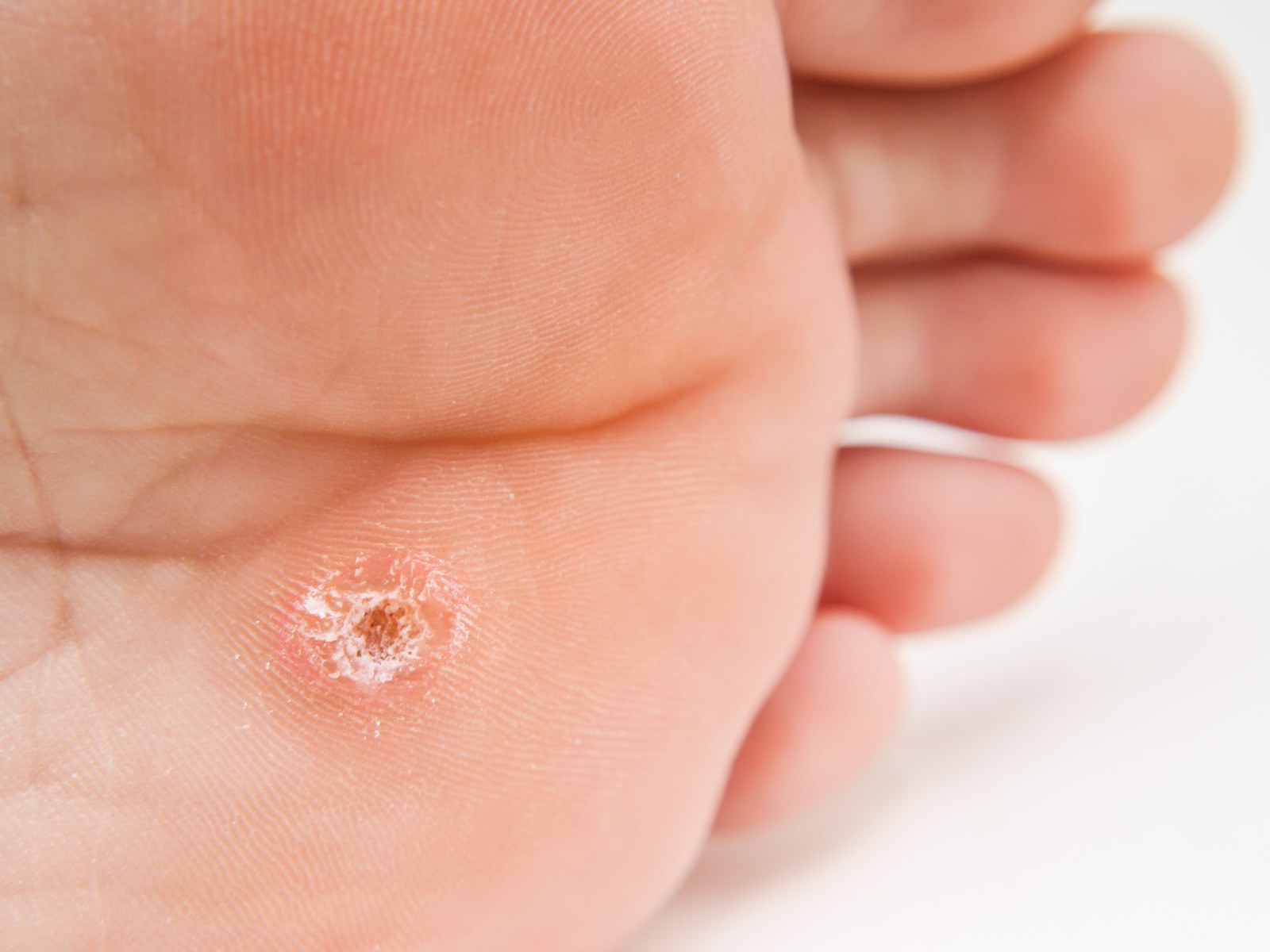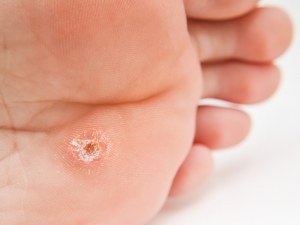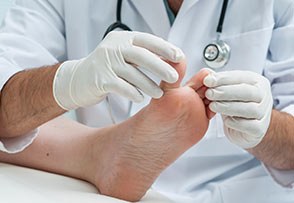Plantar Warts Commonly Mistaken for Corns and Calluses

Wart, Callus or Corn?
What are Plantar Warts
Plantar Warts are a common soft tissue condition that can be very painful. These warts are caused by a virus called Human Papilloma Virus (HPV). Although, it is commonly benign, on rare occasion they can be cancerous.
How to identify Warts

Plantar Wart
Warts are often mistaken for corns and calluses which are layers of dead skin that build up to protect an area which is being continuously irritated. Plantar warts tend to be hard and flat, with a rough surface and well-defined boundaries. Warts are generally raised when they appear on the top of the foot or on the toes. Plantar warts are often gray or brown (color can vary), with a center that appears as one or more pinpoints of black.
How do you get Warts
The plantar warts are often contracted by walking barefoot on dirty surfaces. The virus thrives in warm, moist environment such as, communal bathing facilities. Like any other infection warts can spread by touching, scratching, or even by contact with skin shed from another wart. The wart may also bleed, another route for spreading.
Who is prone to getting Warts
Anyone can get warts but it most common among children and teenagers, people with weak immune system, people who had warts before and people who walk barefoot.
How to prevent Warts
Avoid walking barefoot, change shoes and socks daily, keep feet clean and dry. You should avoid direct contact wit
h warts. Do not ignore growths on, or changes in your skin. Visit your Podiatric physician to check any new growth or lesion on your feet and legs.
What not to do
Self treatment is what no to do. Over the counter treatments contain acids that destroy healthy cells surrounding the wart and often times cause bacterial infection. Self treatment should be especially avoided if you have diabetes or any other health conditions, such as poor circulation which can make healing more difficult.
CHECK OUT THIS Interesting Article Written by our very own Dr. John Mina, and Published by our friends at the SWFL Health and Wellness Magazine!
Professional Treatment
Proper diagnosis is the key to treating the wart properly. Our doctors can biopsy the lesions and offer topical creams, freeze the lesion or even surgical excision.
To learn more please call one of our doctors: (239) 481-7000 or visit us www.aimsfl.com



